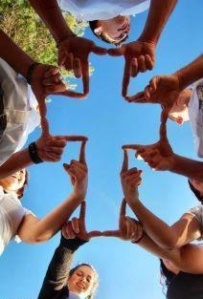Online learning is a huge blessing to those who otherwise might not be able to attend classes or take part in education programs, whether because of geographical or financial limitations, or family responsibilities and scheduling conflicts.
And yet studies find that, while people enroll in online education courses and programs, they very often do not complete them. In a study of online education in Africa, one student pointed out that “[i]n a regular class you have a teacher who is in front of you who makes you concentrate. With the online environment, you have to have discipline, make your own timetable to listen to the lectures, and submit the assignments online.”
It’s like joining a gym: you have the best of intentions, but oftentimes without a personal trainer there to motivate you and hold you accountable, you tend to let it slide. The same goes for learning online — and spiritual growth in general.
Think about it: that’s precisely why we need church: for the community of people on similar journeys, who hold each other accountable, and who motivate, inspire, challenge, and teach each other. As the Rev. Frank Wade says in our course, The Episcopal Tradition, “By ourselves, we begin to worship ourselves.” Sure, he says, “you can worship God by taking a walk in the park — but does the God you meet in the park ever tell you anything you don’t want to hear?”
So online learning (or a gym membership) is only as good as the person invested in it. And the same is true of spiritual formation. If we want to grow in faith, we must commit to it and keep “showing up.” Faith communities are great in that they can help pull us back in when we stray, but at the end of the day, no one can make our journey for us.
What seems to work best for many people is a combination of online and in-person activities. ChurchNext offers several ways to meet this need: individuals in a parish can take a course on their own schedule but then meet regularly, or at the end of a prescribed time period, to discuss and think further about the course content. For example, your church can make a course available for, say, three weeks; parishioners can take the course at their leisure during that time period, and then meet as a group for coffee or dinner to share and discuss. Alternatively, small groups can use the For Groups version of a course to meet regularly, watch a video presentation, and then discuss it together.
How do you learn best? What fosters your spiritual growth? We’d love to hear it in the comments.







